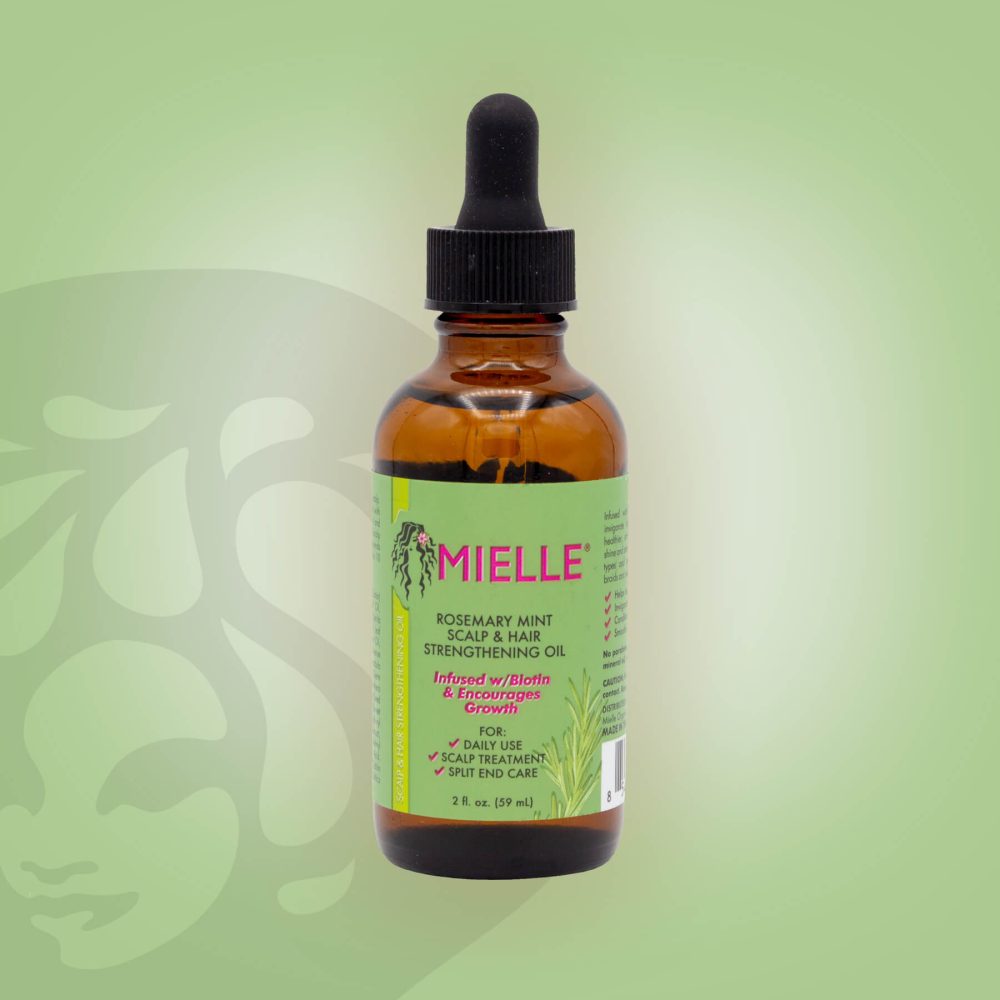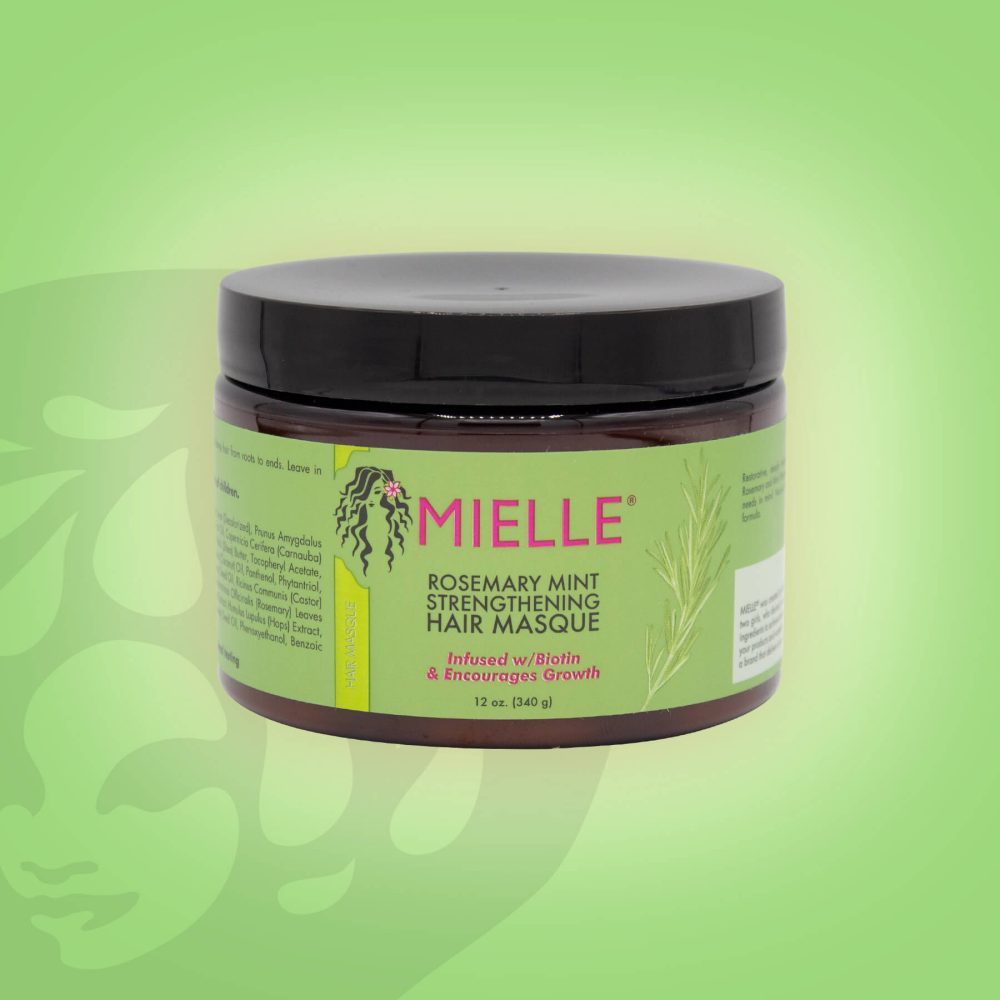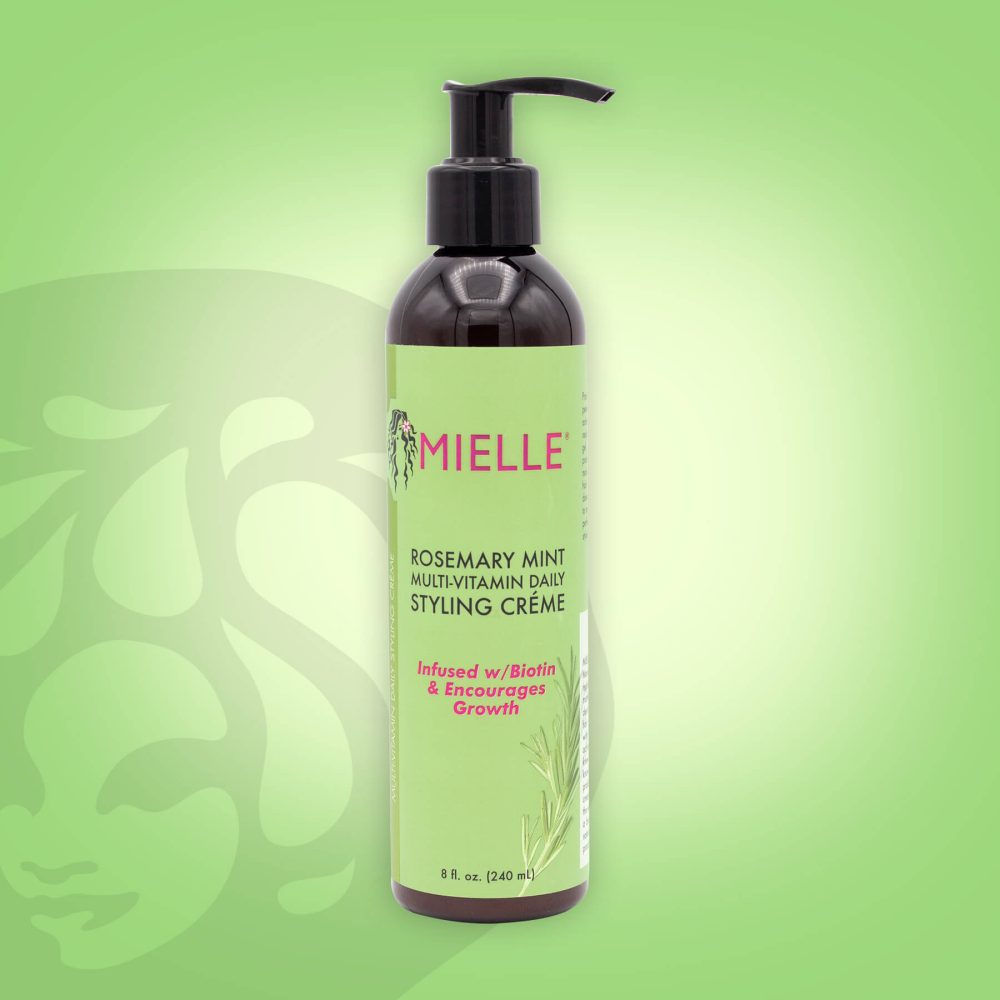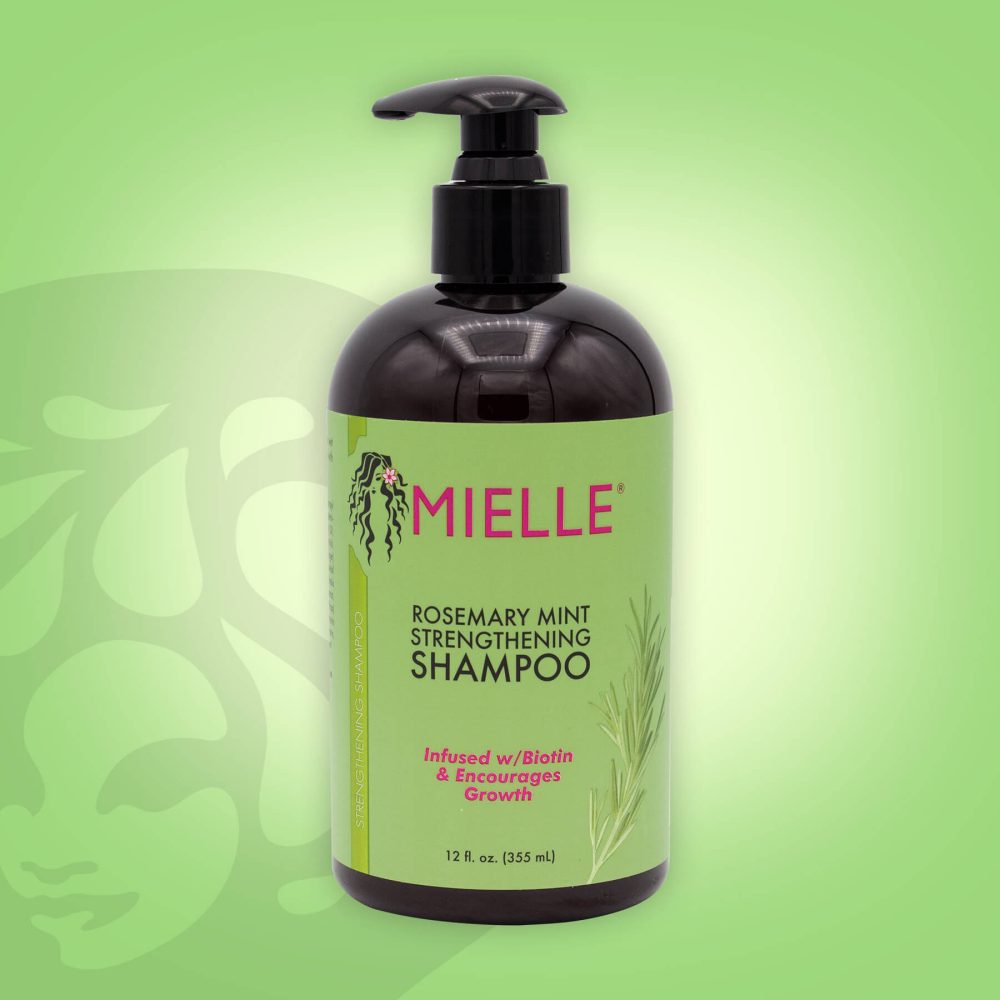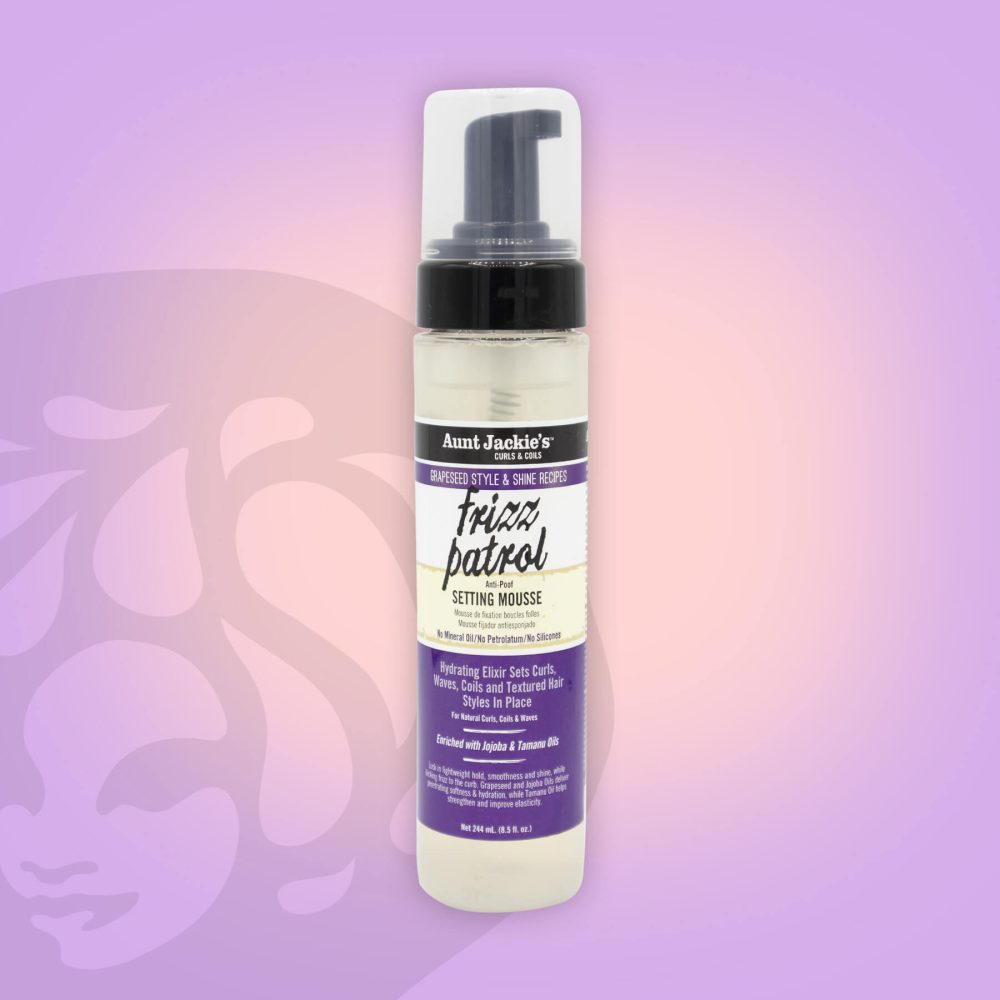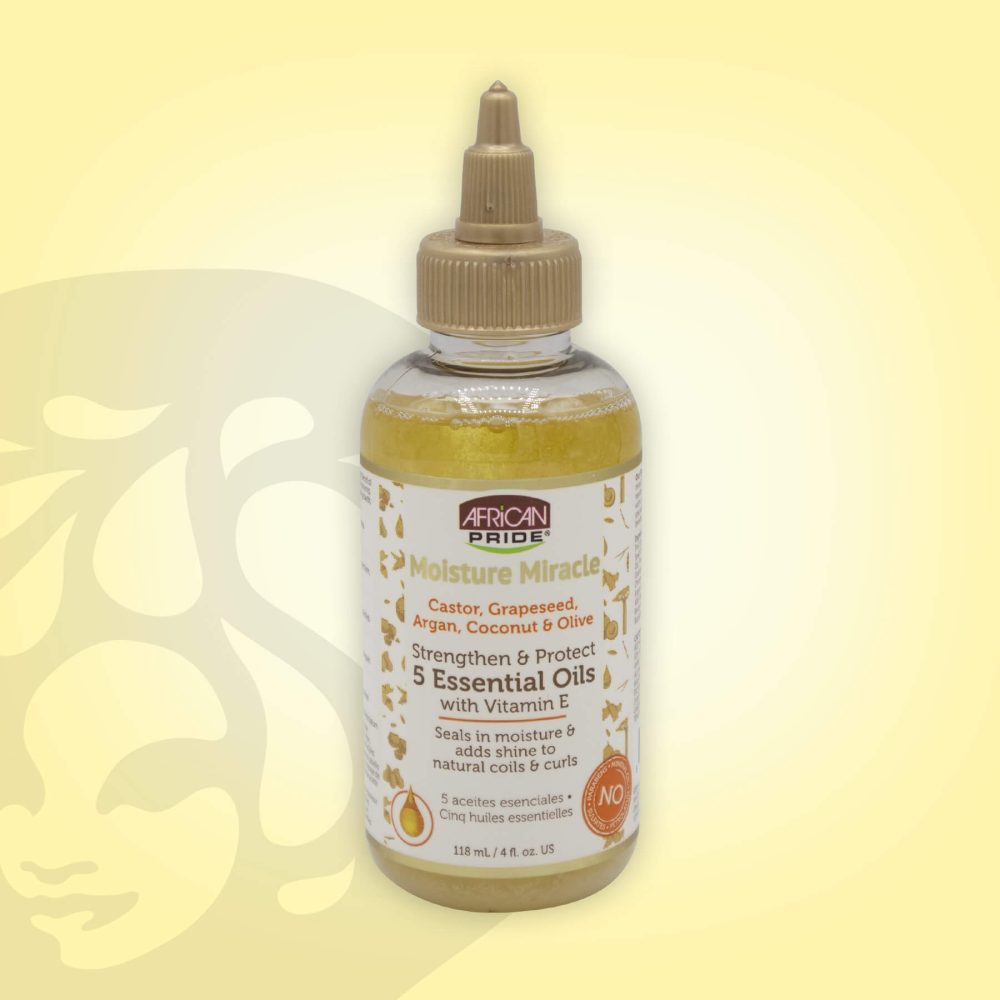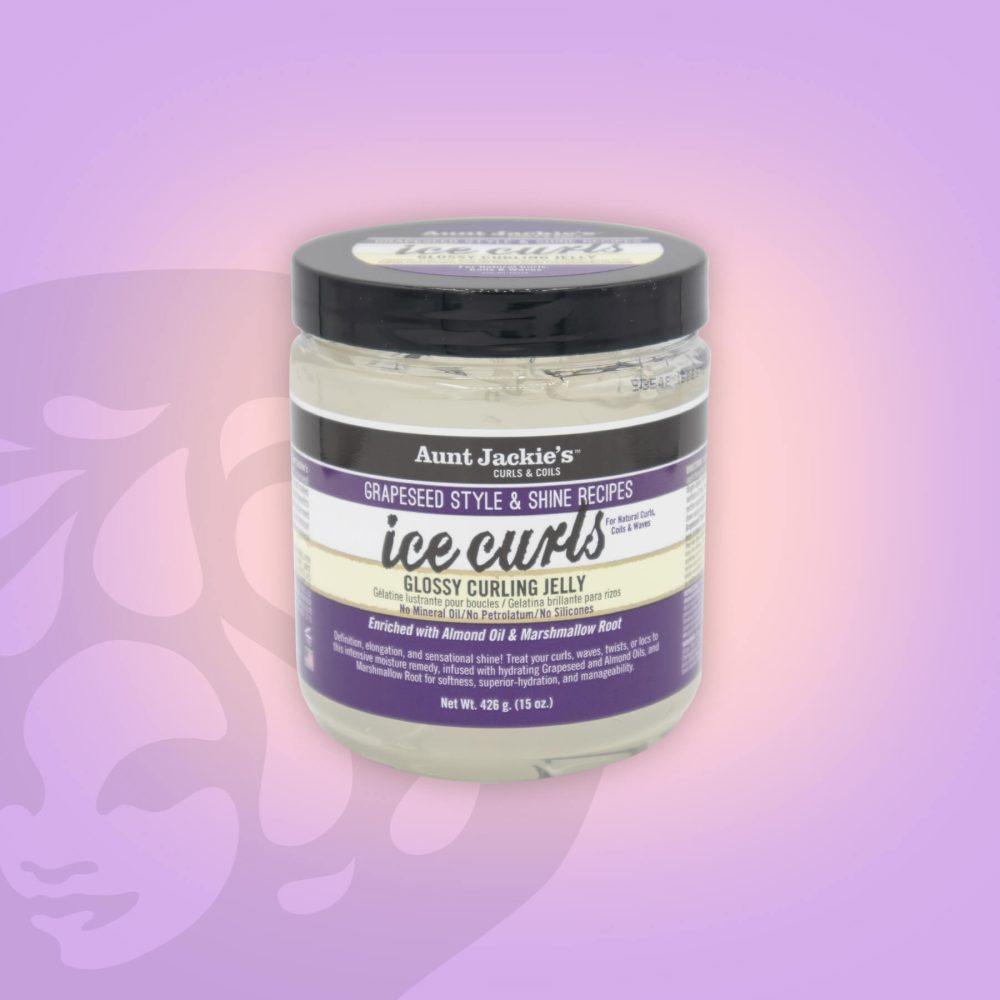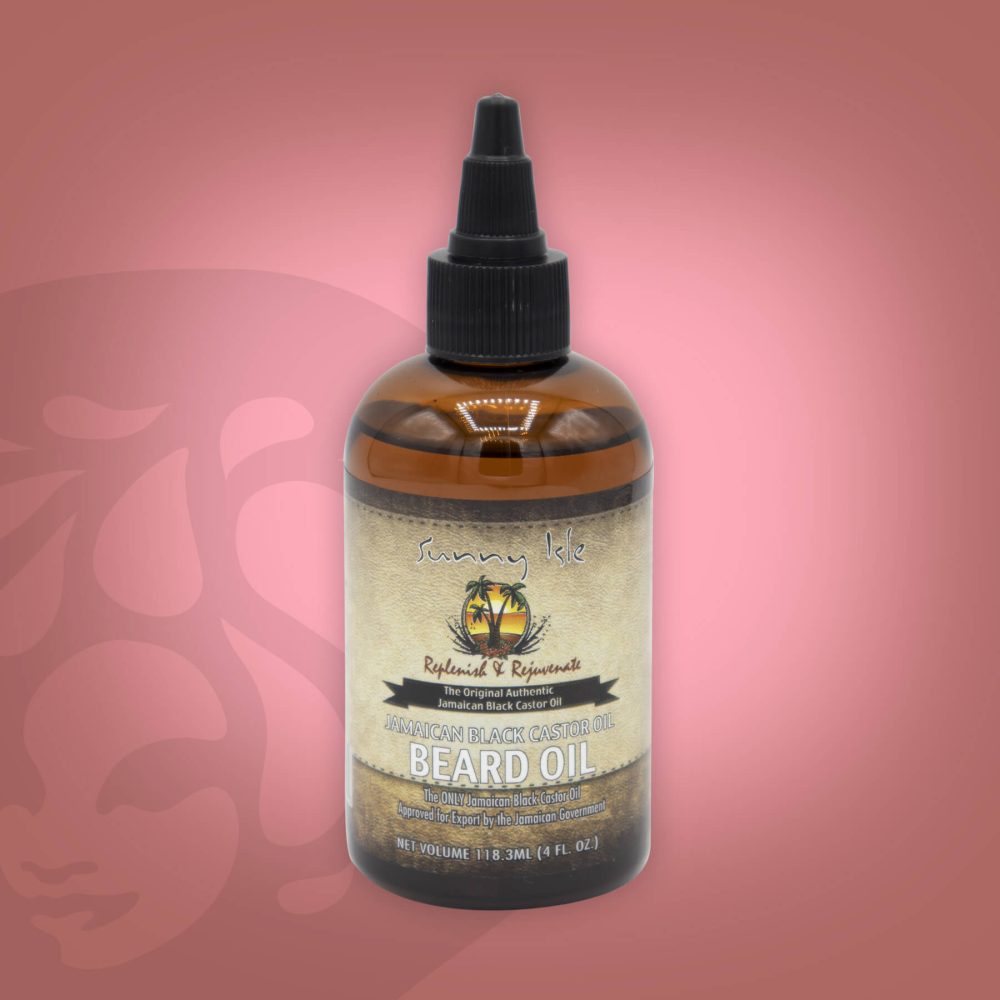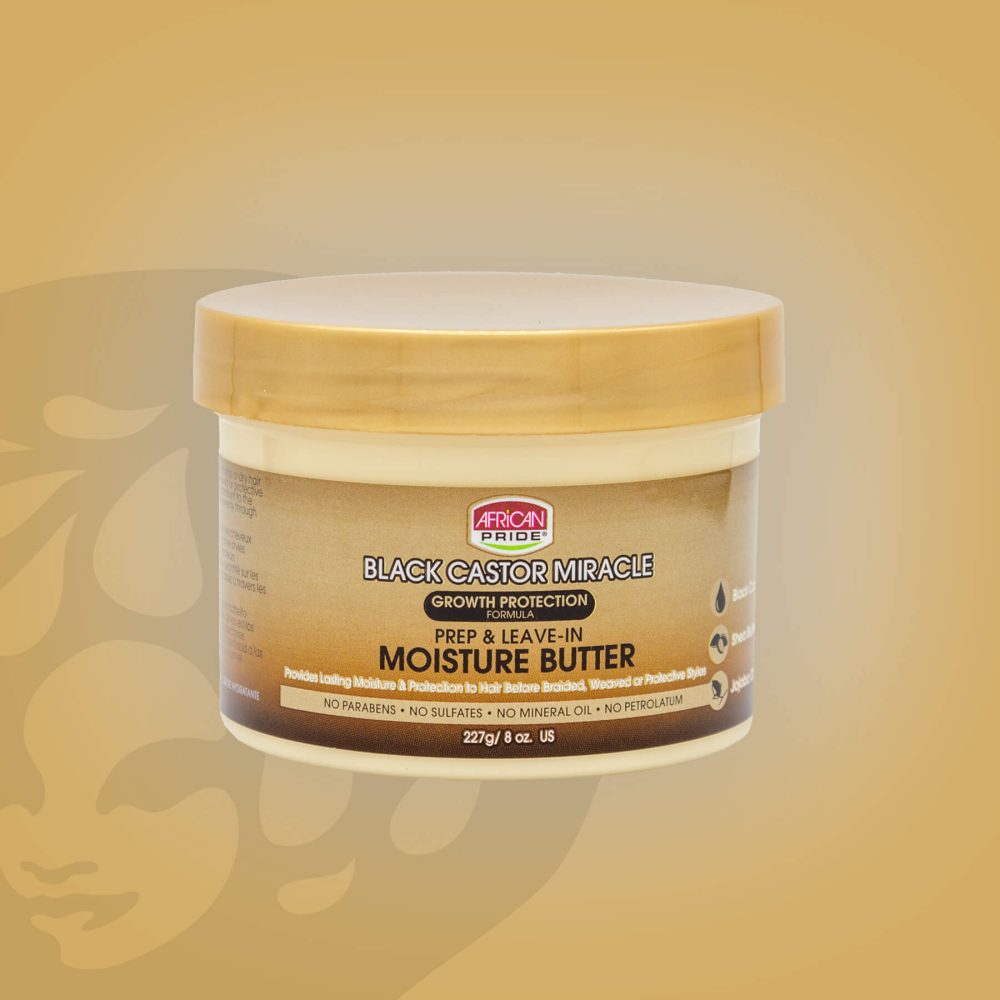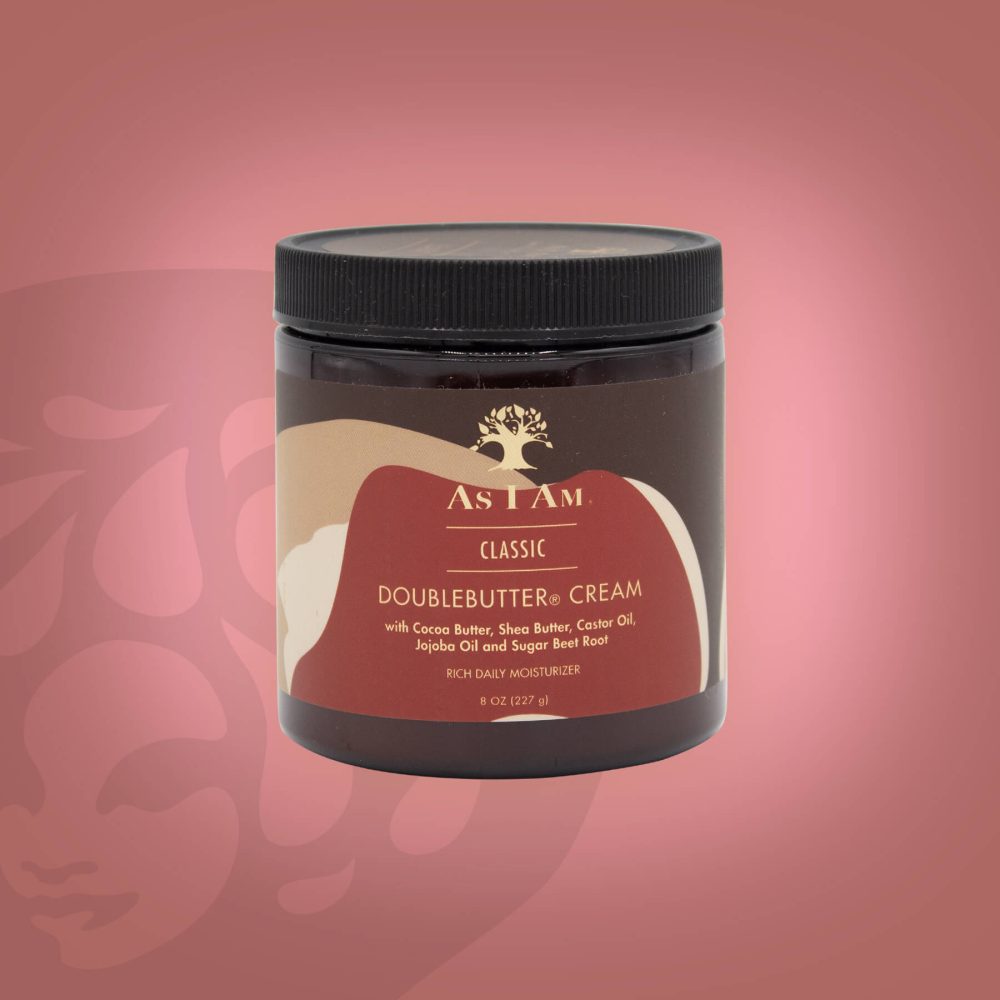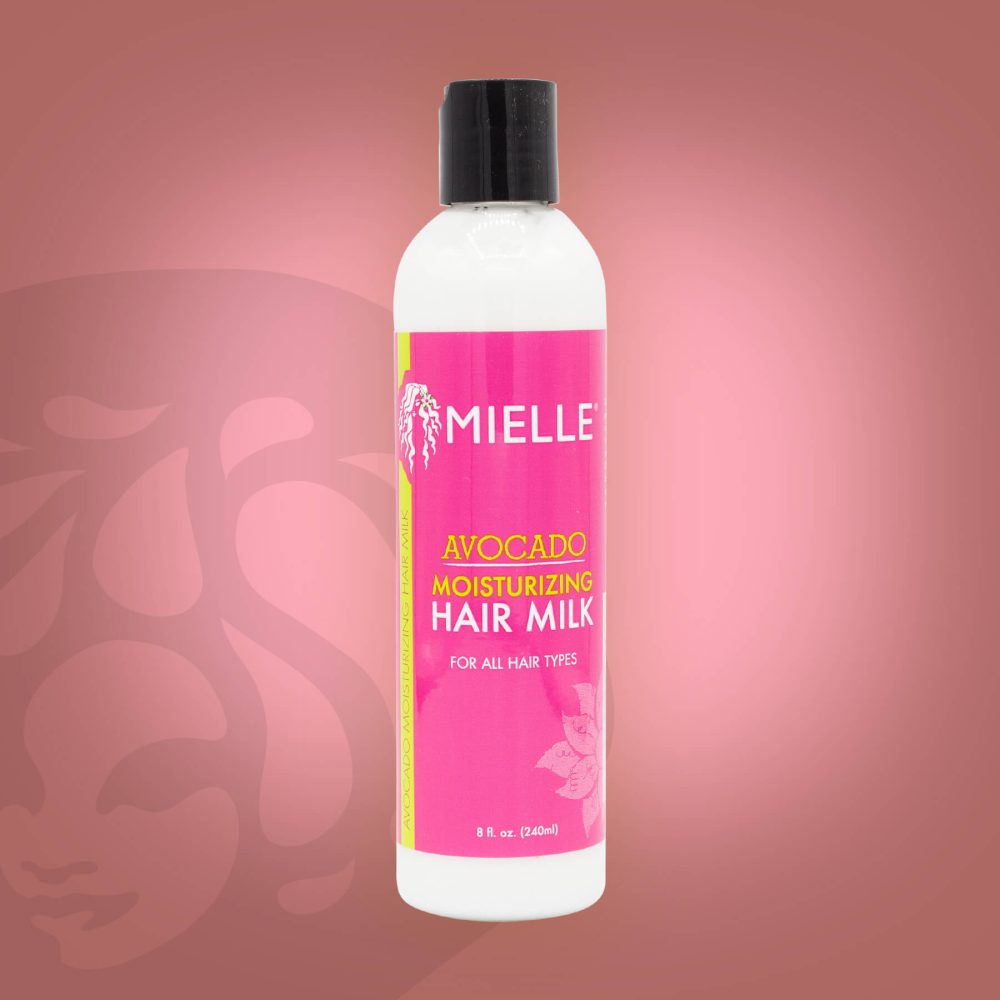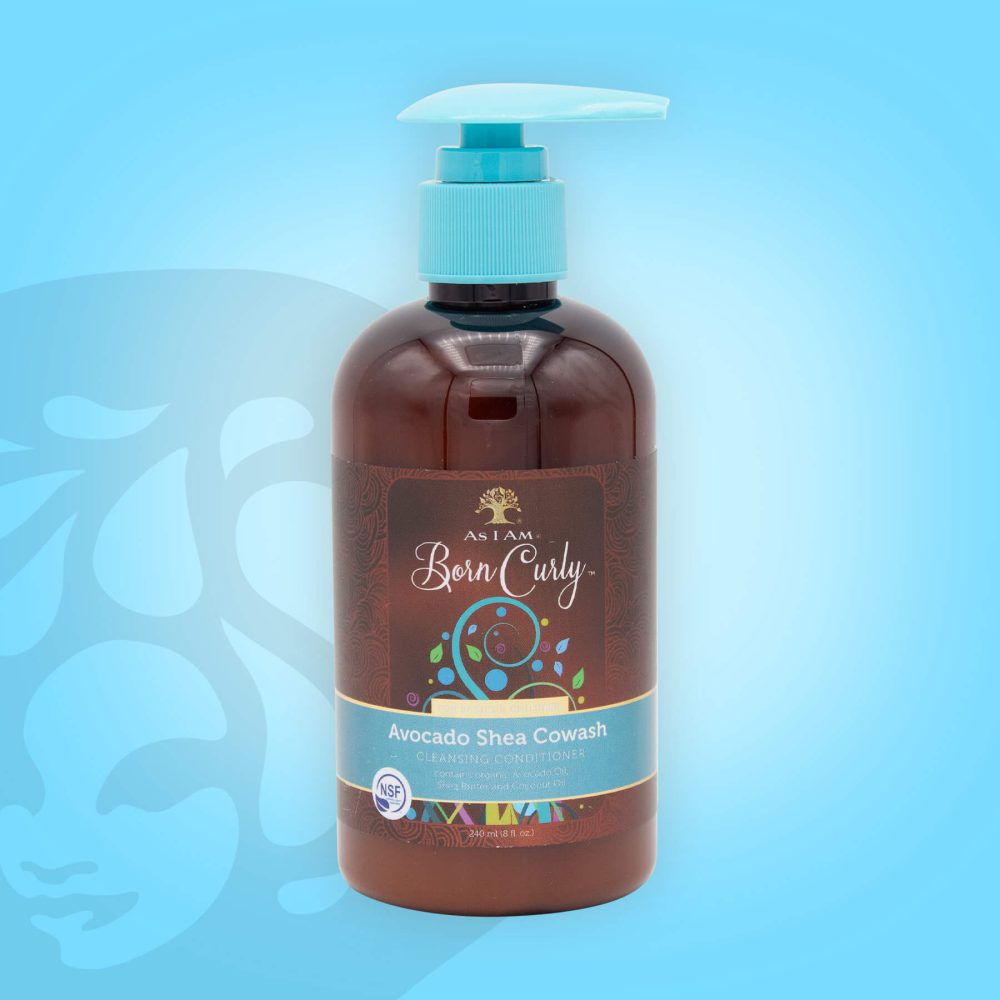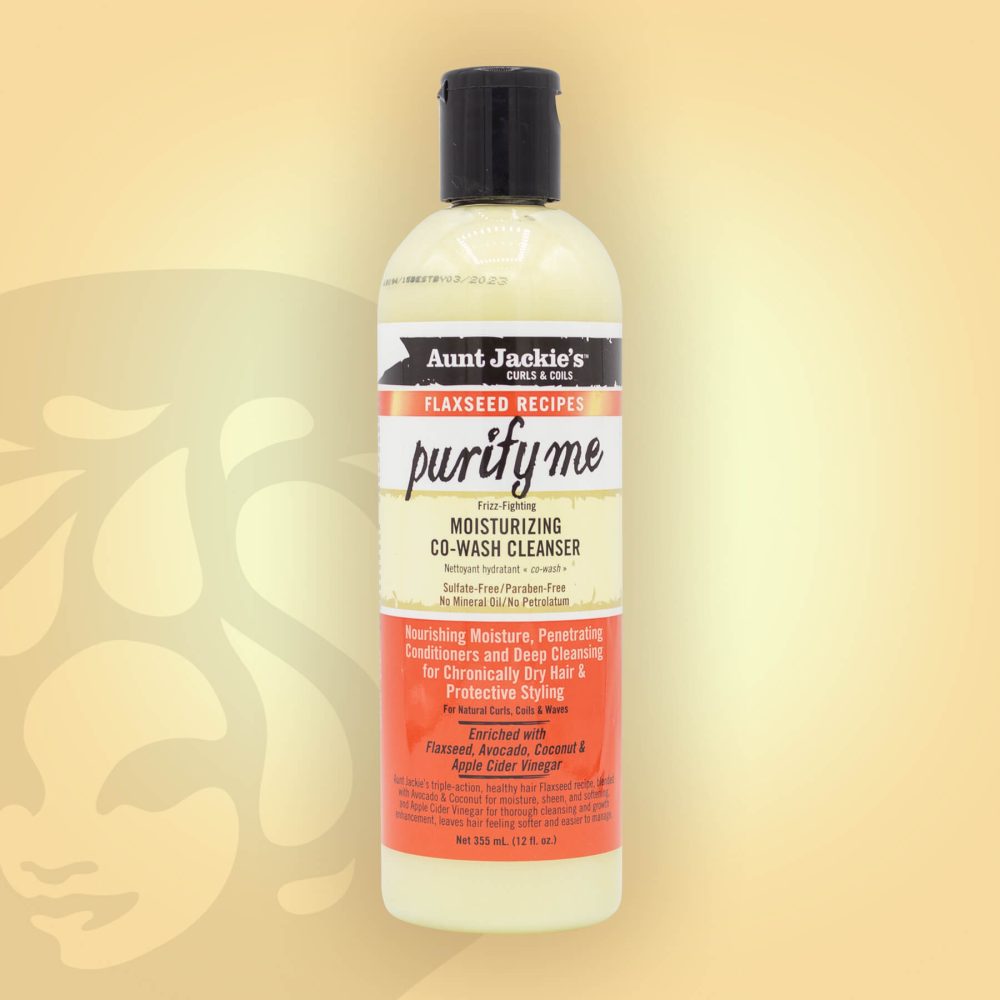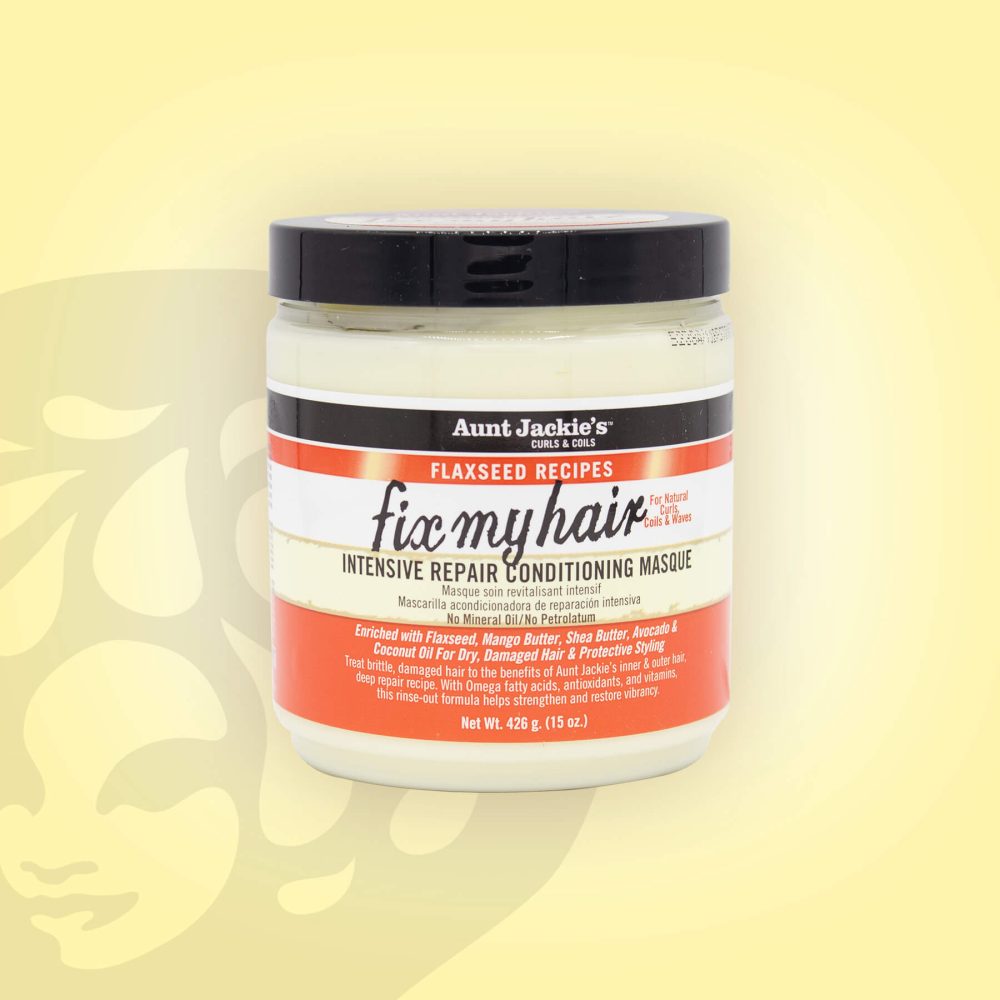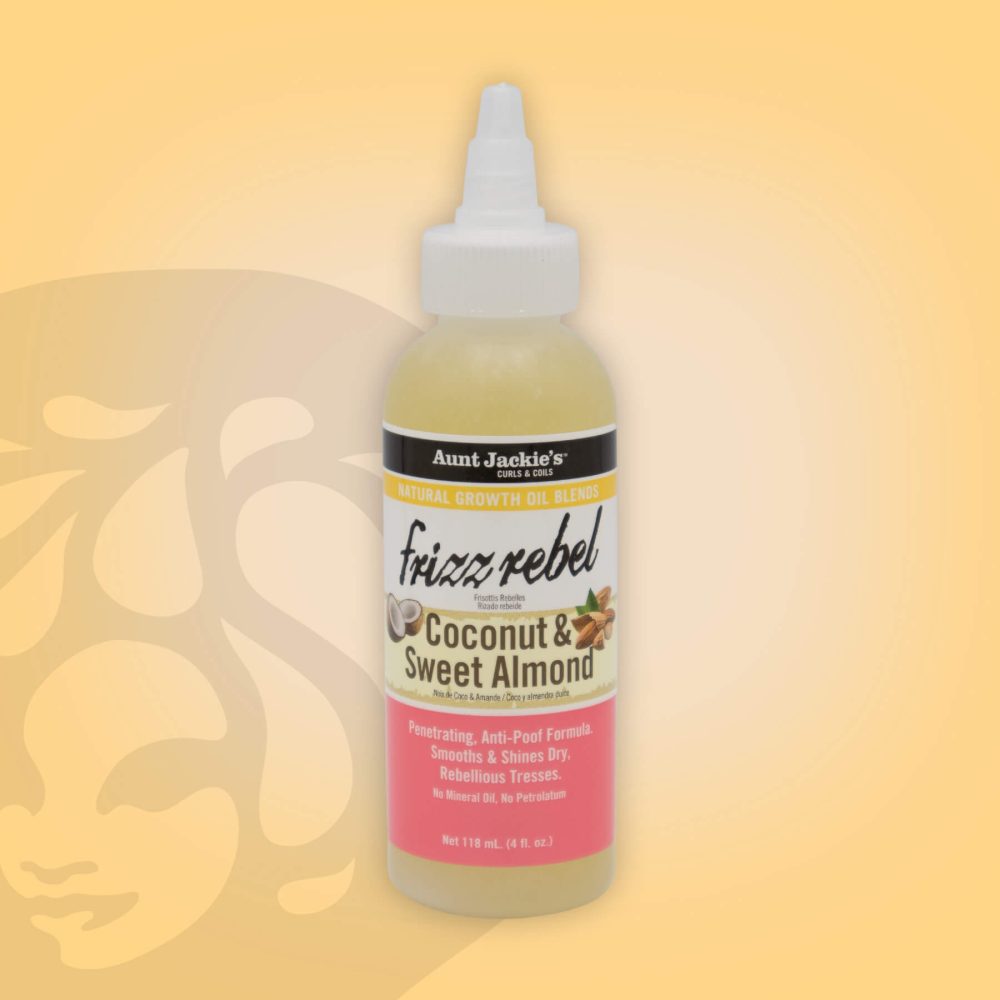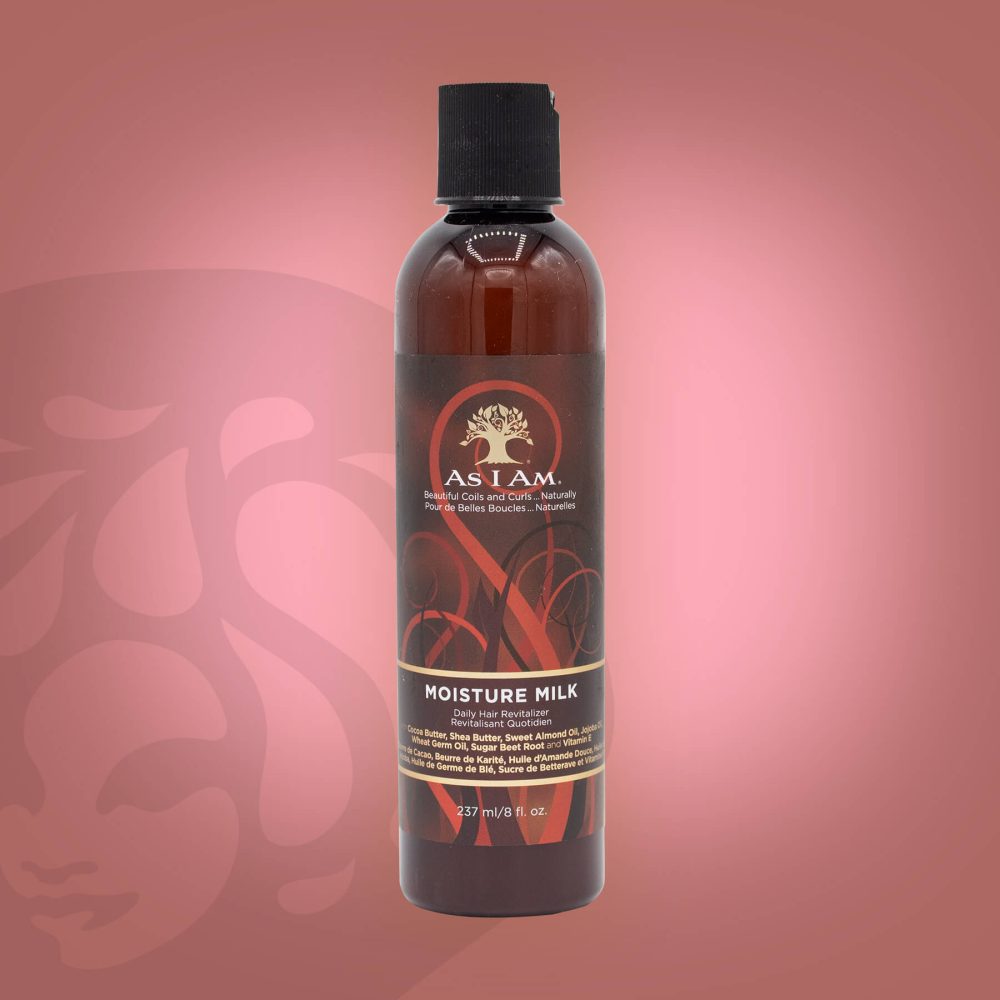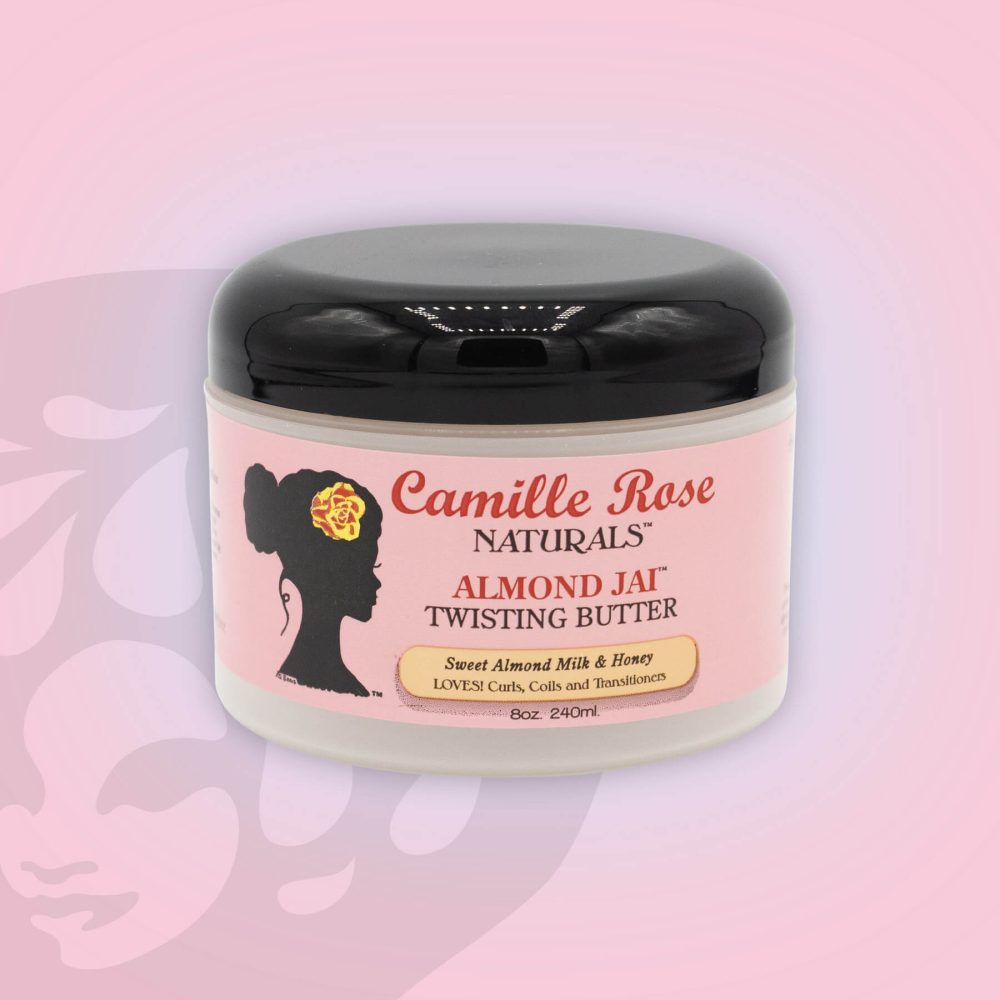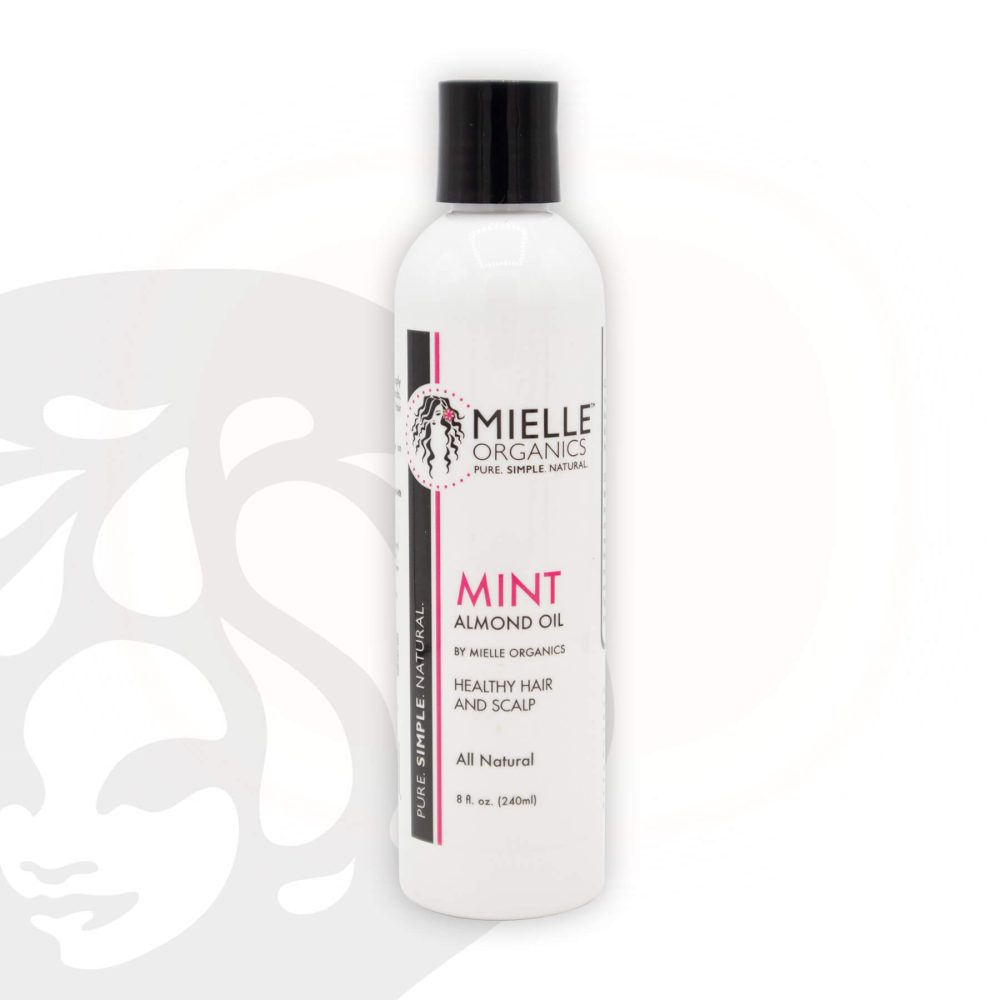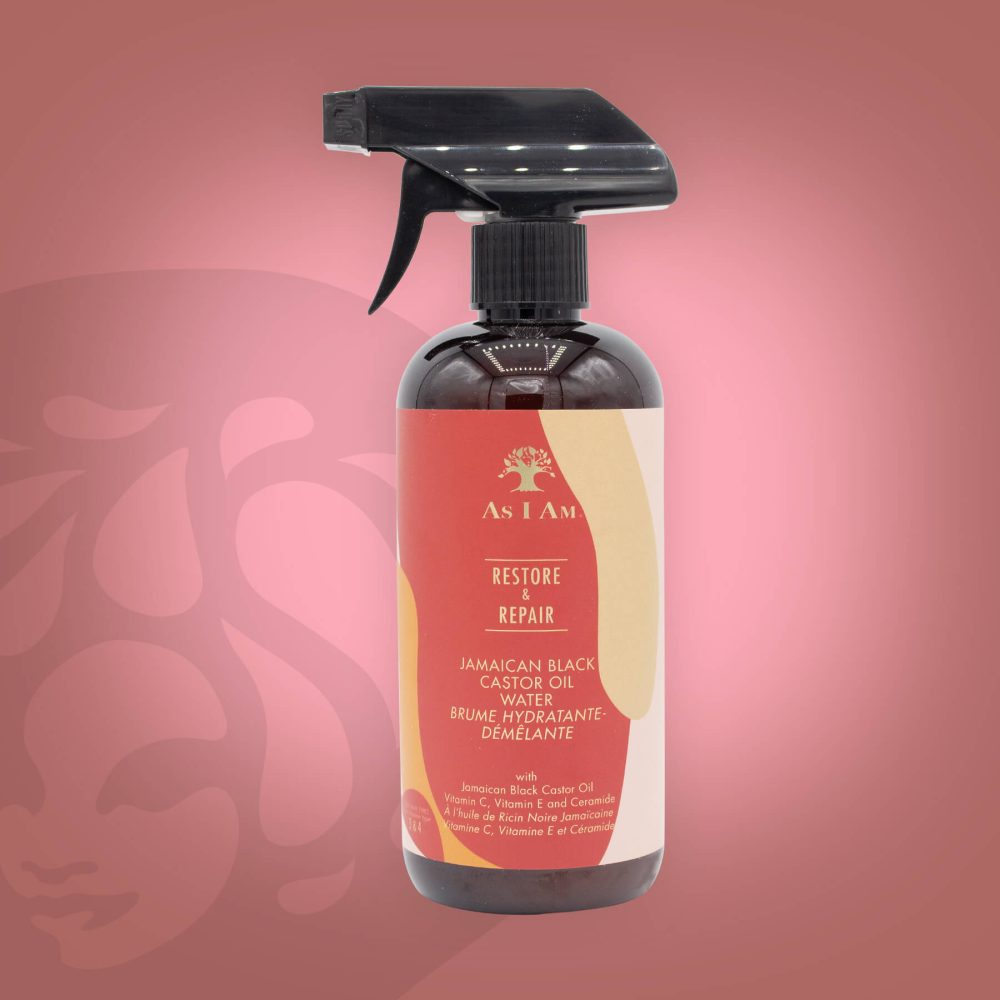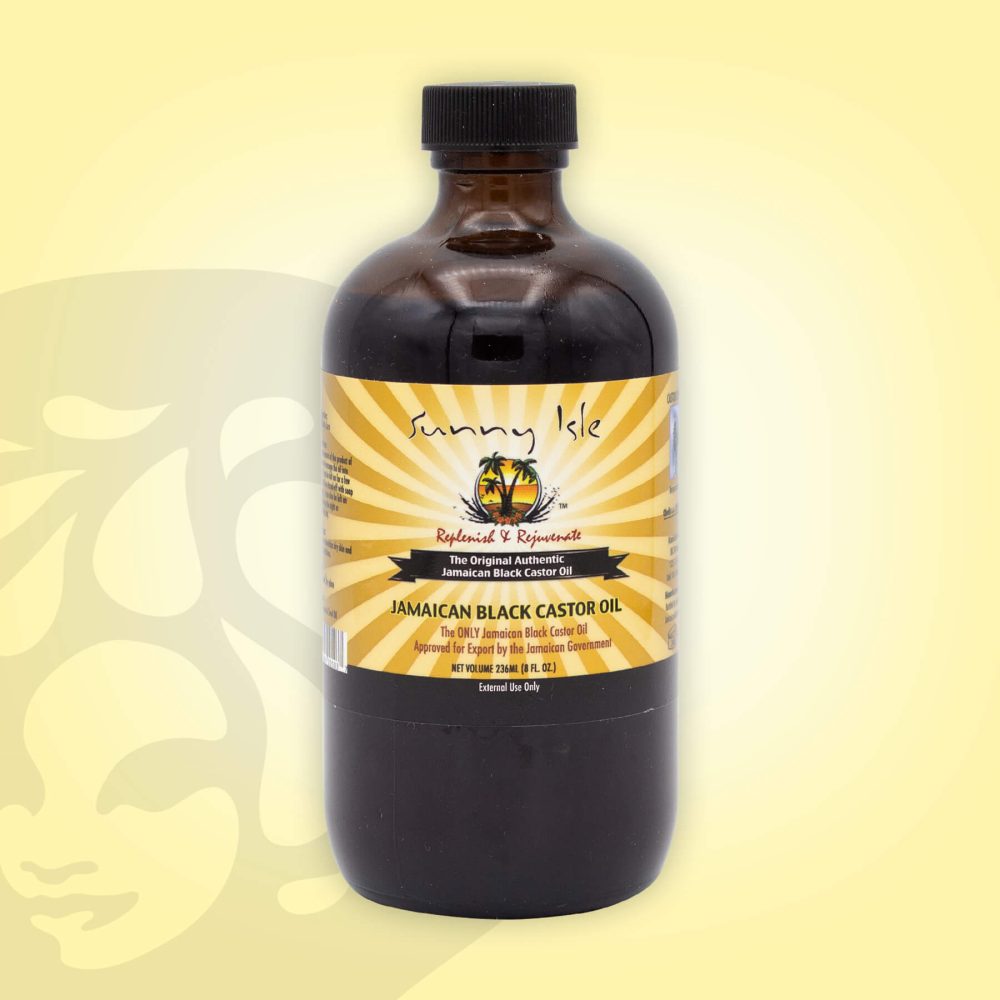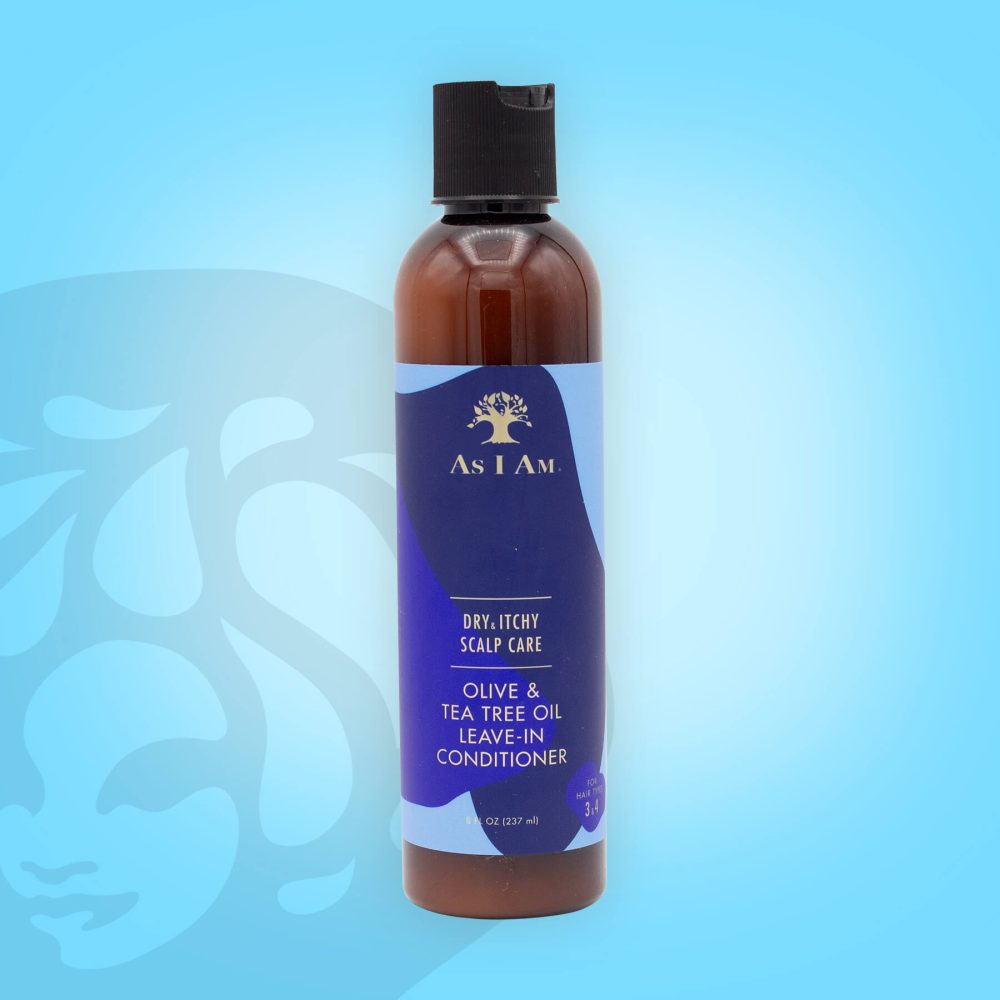Today, let’s tackle carrier oils — you know, the oils that are oftentimes used in order to dilute the potency of essential oils.
Because there are a variety of different ones to choose from, I thought it would be a good idea to break down six that are, hands down, really good for your hair and then six others that do have some benefits yet also come with a few cons that you should really hear about.
Are you ready to become a carrier oil expert, thanks to this lil’ cheat sheet? Let’s do this.
Rosemary oil is incredible for natural hair
I won’t lie — out of all of the oils on this list, probably my favourite one is rosemary oil. I’ve been using it on my skin for a couple of years now and it’s the ultimate moisturiser, breakout reducer and anti-aging oil.
As far as your hair goes, rosemary is pretty awesome due to its potent anti-inflammatory properties and its ability to increase blood circulation to your hair follicles.
Both of these benefits are what make it a leading oil, not only when it comes to restoring hair loss but promoting hair growth and soothing an itchy scalp as well.
I will say that because it’s a bit on the thicker side that you might want to use it as sealant for your ends and you definitely don’t want to “oil your scalp” with it on a daily basis; it could leave your hair limp and greasy if you do.
Our best selling products with rosemary oil
Mielle Organics Rosemary Mint Scalp & Hair Strengthening Oil
£10.99This is the hair and scalp oil that’s SO GOOD you keep it hidden from your friends and family. It smells refreshing, strengthens hair, helps prevents breakage and has a great cooling sensation too. Oh, it’s loaded with incredible ingredients too. It’s an absolute gem and perfect for protective styling.
Mielle Organics Rosemary Mint Strengthening Hair Masque
£9.99First off, it smells DIVINE, secondly it’s one of our absolute fave hair masques with a light yet incredible invigorating scalp effect thanks to the mint and last but not least, it does exactly what it says on the tin! Formulated to strengthen hair, reduce breakage and knock out hydration for your kinks and curls.
Mielle Organics Rosemary Mint Multi-Vitamin Daily Styling Creme
£8.99For us, it’s the Rolls-Royce of styling cremes and we’re big fans of this drop from Mielle! Packed with vitamins plus your hair and scalp will feel refreshed too. It’s also great for hydrating hair and awakening curls.
Mielle Organics Rosemary Mint Strengthening Shampoo
£9.99Stengthens, moisturises and brings weak and brittle hair back to life. A little goes a long way. A gentle tingling feeling from the mint oil and leaves your scalp feeling refreshed. We love a multi-tasker!
RETHINK: Coconut Oil
If you’re looking at your screen and wondering if you read this one right, hear me out first.
Yes, coconut oil does have some “pros” to it. A big one is the lauric acid that’s in it because it’s a fatty acid that helps to protect your hair’s roots.
Plus, coconut oil contains properties that can help to keep bacteria at bay. However, it makes the “eh” list because the protein in it can lead to product build-up.
Also, having too much protein in your hair can lead to overkill which can result in your hair becoming hard and brittle (which can lead to breakage). Not to mention the fact that it’s the kind of oil that’s a solid unless it’s around a certain amount of heat which can be somewhat inconvenient if you’d prefer a liquid base.
For instance, I’ve purchased homemade oil blends with coconut oil in them and I’ve had to put the bottle in some hot water with every use. #annoying
Grapeseed oil is a great choice for your natural hair
Another oil that I like a lot is grapeseed oil. It’s loaded with fatty acids and Vitamin E which makes it ideal for your skin, hair and nails. It protects against free radicals. It reduces inflammation. It has antifungal properties that can help to keep dandruff at bay.
It’s also a pretty good moisturizer, and since it’s a fairly light oil that absorbs well into your skin and scalp, it’s ideal if you want to use a little of it daily or if you’re looking for an oil to give your scalp a massage with.
Aunt Jackie’s conveniently makes a complete Grapeseed oil collection which you can check out too.
Our best selling grapeseed oil
Aunt Jackie’s Frizz Patrol Grapseed Setting Mousse
£7.49Frizzy flyaways are under arrest – there’s a new cop on the block! Aunt Jackie’s Frizz Patrol Grapeseed Setting Mousse stops frizz in its tracks, keeping stray curls, locs, and twists looking beautifully smooth and set all day long. Get sentenced to good hair days every day!
African Pride Moisture Miracle 5 Essential Oils
£5.99Loaded with 5 superpower oils (Castor oil, grapeseed oil, argan oil, coconut oil, & olive oil) it gives curls and coils body and shine that makes them bounce! Seals in moisture, promotes growth and helps prevent breakage. This big 5 brings that miracle moisturising factor your hair can’t get enough of. Say farewell to dull hair forever!
Aunt Jackie’s Ice Curls Grapseed Glossy Curling Jelly
£7.99Infused with Marshmallow Root, Grapeseed and Almond oils, this product simultaneously maintains your curls and ensures that your hair glistens, making this two-in-one jelly a great cost-saver. Aunt Jackie’s Ice Curls Grapeseed Glossy Curling Jelly is easy to apply and makes light work of styling your hair.
Sunny Isle Jamaican Black Castor Oil Beard Oil
£7.99If you’ve always wanted to grow a heathy beard or what you’ve got needs a shot of nourishment and hydration, then you need a dose of Sunny Isle Jamaican Black Castor Oil Beard Oil. In addition to softening your beard and stimulating hair growth, you get all-day moisture for your beard and your skin. Being a beard man just got better!
RETHINK: Olive Oil
I’ll be honest — the main reason why I’m not a fan of olive oil is because of the stench (kinda like stale peanuts?).
It’s not super overwhelming and it typically wears off after an hour or so but still, that’s enough to make me want to “hard pass” it.
And while olive oil does contain the chemical elements oleic acid, palmitic acid and squalene which can help to soften your hair, antioxidants to strengthen it and it’s not bad as a moisturiser for hair that’s been chemically processed, if your hair is fine, it definitely will weigh it down.
Also, it contains some ingredients that yeast likes the feed off of; problem with that is Malassezia is a yeast-like fungus that causes dandruff.
So, if dandruff is something that you struggle with, olive oil could actually make it worse.
Also, if you use it all of the time, it has the potential to clog your hair follicles over time. Also, you should never use it while applying heat because it could quite literally “cook” your hair (no pun intended).
Jojoba Oil – A solid multi-vitamin hair oil
Talk about a multivitamin for your hair. I say that because jojoba is packed with vitamins A, D, E, copper, zinc and fatty acids.
All of these nutrients work together to moisturise your hair and scalp, slow down premature again (especially the copper), fight off potential scalp infections, reduce frizz and stimulate hair growth.
Some people like to add a couple of teaspoons of jojoba oil to their shampoo or conditioner because it can serve as an emollient which means that it can soothe your scalp and moisturise your hair.
So, if you’re looking for an oil that will hydrate a dry scalp or help to reduce hair breakage, jojoba has totally got your back.
Our best selling products with jojoba oil
African Pride Black Castor Miracle Leave-In Moisture Butter
£5.99Wakes up curls, moisturises and seals locks! Perfect for daily styling, protective styling and for the ‘C’ in your LOC/LCO regiment. It’s also amazing for quenching the thirst of medium/high porosity hair too!
Aunt Jackie’s Frizz Patrol Grapseed Setting Mousse
£7.49Frizzy flyaways are under arrest – there’s a new cop on the block! Aunt Jackie’s Frizz Patrol Grapeseed Setting Mousse stops frizz in its tracks, keeping stray curls, locs, and twists looking beautifully smooth and set all day long. Get sentenced to good hair days every day!
As I Am Classic DoubleButter Cream Rich Daily Moisturiser
£11.99This drop from As I Am gives your curls and coils a buttery kiss that’s full of goodness. Loaded with shea butter and cocoa butter, it turns dry and damaged hair that’s dull and rough into a silky daydream. It’s a rich everyday treat that ticks all the right boxes and it smells SO good!
Mielle Organics Avocado Moisturising Hair Milk
£11.99If a hair milk is so good that it wins awards, what more do we need to say?! This product scooped the NaturallyCurly Best of the Best – Leaders in Curl Award, and it’s not hard to see why! Thirsty, dry hair gets real hydration from an all-natural formula, leaving your hair smooth and soft. You can kiss yo’ dry tresses bye!
RETHINK: Argan Oil
Argan oil comes from the argan tree in Morocco. Over the past several years, it has become pretty popular because it’s got the fatty acids oleic acid and linoleic acid in it that can help to reduce frizz while boosting shine.
It also contains anti-inflammatory properties and antioxidants which are always helpful if you want your hair follicles to thrive.
Still, I’m not a fan because whenever I use it, it makes my hair dry. From what I’ve read, it’s because argan oil the tendency to create a barrier on your hair. So, while it can help to shield your hair from damaging UV rays (good), it can also keep additional moisture from getting in which could dry your hair out — which is exactly what I’ve experienced, every time that I’ve used it.
Avocado oil is another great shout for natural hair
An oil that is a good source of vitamins A, D and E along with protein, fatty acids and beta-carotene is avocado oil.
That’s why many skin experts sing its praises because it can protect your skin from the damage that sun can do while also increasing collagen production, so that you can slow down the signs of ageing.
What makes this particular oil so awesome for your hair is it helps to reduce dandruff, it can prevent breakage and it’s a non-drying shield when it comes to protecting your hair from the sun, pollution and even chlorine.
Ideally, this is the kind of oil that you would use as a main ingredient for a DIY hair mask or conditioner.
Just a slight word of caution — if for some reason, you are allergic to latex, you might want steer clear of this. Oftentimes people who fall into that category are allergic to this particular oil too.
Our best selling products with avocado oil
As I Am Born Curly Avocado Shea Co-Wash
£7.99This has got to be the ultimate co-wash for kids – facts! Loaded with key ingredients like avocado and shea butter, it’s nourishing, rich and a little goes a long way. It even doubles up as a great detangler. We’re big fans!
Aunt Jackie’s Purify Me Flaxseed Co-Wash Cleanser
£5.99With this drop from Aunt Jackie’s Giving frizz the boot is as easy as washing your hair. Fact! The triple action formula gets right to the root of the problem and removes build up and impurities while replenishing moisture and softening at the same time. That’s a triple win for hair and a big fat zero for frizz!
Mielle Organics Avocado Moisturising Hair Milk
£11.99If a hair milk is so good that it wins awards, what more do we need to say?! This product scooped the NaturallyCurly Best of the Best – Leaders in Curl Award, and it’s not hard to see why! Thirsty, dry hair gets real hydration from an all-natural formula, leaving your hair smooth and soft. You can kiss yo’ dry tresses bye!
Aunt Jackie’s Fix My Hair Flaxseed Intensive Repair Masque
£5.99We’re big fans of Aunt Jackie’s and particularly this drop, Fix My Hair; a great value deep conditioning masque that’s the perfect prep step for protective styling. It’s thick, rich and it smells great! Oh and of course, if leaves your kinks and curls nourished, hydrated and on point.
RETHINK: Hemp Seed Oil
The good news is hemp seed oil contains lots of fatty acids, Vitamin E and even chlorophyll (chlorophyll can help to slow down the greying process). Something that is kinda cool about this oil is, if you apply it to damp hair, it can help to reduce breakage because it actually helps to strengthen hair whenever it’s wet.
Some also say it has increased volume to their strands. So, why is hemp seed oil on the rethink side? It’s low-key got the reputation for being an oil that can dry your hair out; especially if you use it all of the time. So, if you must add this to your hair regimen, the biggest takeaway is to use it sparingly.
Sweet almond oil is another multi-vitamin powerhouse
Another oil that totally and completely makes me smile is sweet almond oil. It’s got Vitamin A, E and zinc in it which is great for your skin and hair.
I use sweet almond oil often on my skin because it’s a solid moisturiser yet light enough to not clog up my pores.
Plus, it’s a great oil for acne and softening the appearance of acne scars. I also apply it to my hair from time to time because it softens my tresses without leaving a heavy residue, it helps to reduce breakage and split ends and it even helps to treat scalp conditions like seborrheic dermatitis and scalp psoriasis. You will never regret using this oil for your hair care needs.
Our best selling products with sweet almond oil
Aunt Jackie’s Frizz Rebel Coconut & Sweet Almond Oil
£4.99Move aside, frizz – there’s a new boss in town! Aunt Jackie’s Frizz Rebel Coconut & Sweet Almond Oil combats frizz, dryness, and curl shrinkage for a happier, healthier, and bouncier head of curls. Ka-boom!
As I Am Classic Moisture Milk Daily Hair Revitaliser
£10.99A Classic Moisture Milk that’s a hair pantry staple! Your curls are going to look moisturised and thrive with this everyday revitaliser. Loaded with cocoa and shea butter, suitable for all hair types and it’s versatile enough for daily use, this leave-in conditioner is made to give your hair the love and nutrients it needs to shine and define.
Camille Rose Naturals Almond Jai Twisting Butter
£11.99A nutritious everyday styling cream that leaves hair feeling soft and looking incredible? You heard us right! A gorgeous butter from Camille Rose that’s sure to become a new staple in your hair pantry. The Camille Rose Naturals is all about keeping it real, with ingredients you can recognise and a clean bill of curly girl health! Perfect for wash n go styles and even better for twist-outs.
Mielle Organics Mint Almond Oil
£11.99Soothes dry scalps, stimulates hair follicles, and adds voluptuous sheen to any head of textured hair! With uplifting peppermint oil and moisturizing almond oil, this all-organic product is here to help you boost hair growth and hydrate with scalp for root-to-tip rejuvenation.
RETHINK: Camphor Oil
Camphor oil is an oil that’s extracted directly from camphor trees. A lot of people like it because it contains properties that help to relieve chest congestion while reducing body inflammation.
There are a few reasons why it gets the “thumbs down” as far as hair is concerned, though. For one thing, it has a really strong odour that’s a lot like menthol (kinda smoky menthol). And while it can help to slow down the greying process and soothe and itchy scalp, camphor oil can also irritate your skin and scalp too.
Plus, if your scalp happens to have any abrasions or cuts from it (like from scratching a lot or your styling tools affecting it), applying camphor oil could indirectly cause your system to absorb toxic levels of it; totally not worth the risk, if you ask me.
Jamaican black castor oil – a solid and popular choice
If there’s one carrier oil that’s pretty darn popular within the Black community, it’s Jamaican black castor oil.
The backstory on it is it’s made up of Jamaican castor beans and the properties in it are absolutely amazing when it comes to strengthening your hair, thickening your strands, increasing blood flow to your scalp, helping to prevent hair breakage and treating scalp issues like eczema, dandruff and dry scalp.
In fact, if you make a point and practice to apply it to your scalp a couple of times a week, you should notice thicker hair in about three months.
The main thing to keep in mind about this oil is it’s really thick; that’s why I prefer to use it to seal my ends more than anything else. That said, a line that I will shout-out is Sunny Isle, mostly because it comes in a variety of different “add-ins” including Xtra Dark, lavender and rosemary. I’ve used several and have enjoyed them all!
Our best selling products with JBCO
As I Am Restore & Repair Jamaican Black Castor Oil Water
£9.99One of our best sellers hands down. This drop from As I Am is the ultimate curl refresher and ‘L’ in your LOC or LCO routine. A light and pleasant fragrance, moisturising and lightweight. It’s the perfect prep step for styling and moisturises more than just water alone – that’s why we love it!
Sunny Isle Jamaican Black Castor Oil
£5.99The original and the best, and did we mention it does absolutely everything? From your hair, eyelashes, brows, beards and skin care in one bottle!
As I Am Dry & Itchy Scalp Care Leave-In Conditioner
£8.99The ultimate anti-dandruff leave-in conditioner – FACT! Say goodbye to dandruff and a flaky, itchy, and dry scalp with this nourishing and active leave-in that’s loaded with tea tree oil (proven to soothe dry skin) and coconut oil. Define, nourish and tame your curls AND care for your sensitive scalp in one go. That’s a triple win right there!
African Pride Black Castor Miracle Leave-In Moisture Butter
£5.99Wakes up curls, moisturises and seals locks! Perfect for daily styling, protective styling and for the ‘C’ in your LOC/LCO regiment. It’s also amazing for quenching the thirst of medium/high porosity hair too!
RETHINK: Castor Oil
Now, how could I just sing all of those praises of Jamaican black castor oil and then turn around and not recommend castor oil?
Good question. First, let’s touch on the differences between the two. At the end of the day, not only is Jamaican black castor oil a much darker colour, it also is processed differently (castor oil is prepared with no heat) and the ash that’s in Jamaican black castor oil has clarifying properties in it that are good for your hair and scalp.
Anyway, as far as castor oil hair benefits go, while it does have a texture to it that can help to moisturise your hair, many health professionals say there aren’t any solid claims to say that it helps to promote hair growth or prevent hair loss (this goes for your eyebrows and eyelashes too). So, why waste your time and money on something that doesn’t have any backup evidence that it will actually help you?
There you have it y’all — 12 oils and why you should strongly invest in some and think long and hard about others. Hope this shed some light and assists you on your hair growth journey. Many have definitely helped me out with mine!
